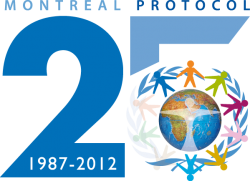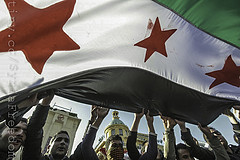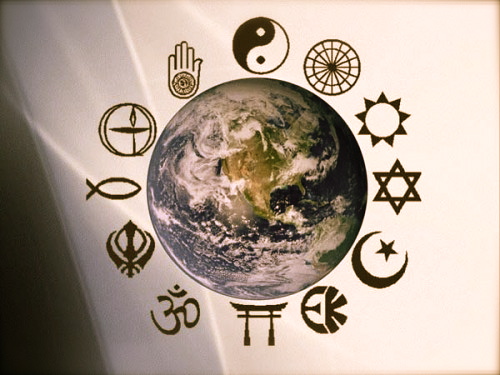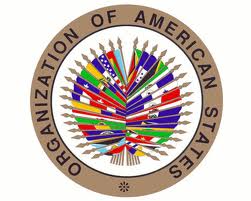
Montreal’s Legacy: How Ozone Success Shaped Climate Politics
Last June, the international environmental community gathered at the Rio+20 UN Conference on Sustainable Development set for hard-fought negotiations on sustainable development. This occurred with the backdrop of decades of questionable progress on global environmental issues like deforestation, biodiversity and climate change. Old hands lamented the missed opportunities and false dawns in the years since the 1992 Rio Earth Summit. Rio+20 needed to be a turning point — seen as a once-in-a-generation opportunity to find a new paradigm for sustainable development and kickstart a transition towards ‘green growth’ [1]. But while Rio+20 marked the marquee environmental summit of 2012, another much quieter – and perhaps more significant – anniversary takes place in a few days’ time, one that does much to tell us about …

Tehran 2012: From the Axis (of evil) to the Non-Aligned Movement
After long years of silence and quiescence, the Non-Aligned Movement gained momentum in the debate about global governance and the management of alternative strategies of engagement with the world of international affairs. The setting was an unusual one per se, suggesting that the 16th gathering of the NAM was likely to be of a different nature. Indeed, Tehran, during the heated summer of 2012, seemed to be one of the less aligned capitals of the world, for a number of issues, widely debated in political science circles as well as among foreign policy decision-makers. Crippling sanctions, shadow negotiations and an on-going regional conflict in the Middle East, with several branches developing in Syria, Lebanon, Bahrain and perhaps Yemen, have put …
ICC Captive Is Pawn in Struggle between Militias and the NTC
The key fault lines dividing the interim Libyan central government from both the militias and the international community are starkly illustrated in the ongoing saga surrounding the detention of four International Criminal Court (ICC) officials in Libya since June 7th. Among the detainees, Melinda Taylor has received the brunt of media attention, because she is a young and attractive Australian lawyer who was assigned by the ICC to represent the deposed dictator’s son, Saif al-Islam al-Qadhafi. She is currently being held captive by Zintani militiamen for ‘spying’. She allegedly possessed a digital pen camera and passed her client encrypted messages from Mohammad Ismael — a former crony of Saif’s, wanted for war crimes. It will likely be impossible for the …
It is Not Only About Germany: Technocratic Agenda and the European Project
Mark Leonard, Director of the European Council on Foreign Relations, recently discussed an important trend that looms over the European project. Commenting on the recent scandalous statements by the Germany populist politician Thilo Sarrazin and the disavowal of his position by leading German politicians, Leonard voiced his concern that if ‘the establishment cartel turns [populists like Sarrazin] into outcasts rather than arguing with their views’, they will be able to tap into an ever-growing ‘reservoir of pent-up political frustration’. Leonard goes on by stressing that it is particularly worrying that ‘Germany’s leaders are now trying to treat foreign politicians who question German orthodoxy the same way they treat their own populists’. German responses to the question of a Greek referendum …

Lifting the Siege: Protecting Civilians in Syria
Even the most zealous ideologues have been challenged approaching Damascus. Thrown from their horse, they have been left dazed and partially sighted, forced to re-examine their norms. Damascus has presented such a challenge once again in recent months. This time, it is the new norm in international relations known as R2P—the responsibility to protect—that has been temporarily unseated. It is a simple formula. This important new norm contends that it is the international community’s responsibility to protect civilians when a state fails in its responsibility to do so. R2P has made swift progress in the international community since its adoption (in a watered-down form) at the United Nations Summit in 2005, gaining acceptance at the same time as the rise …
Iran and the Nuclear Negotiations in Moscow: The ‘give and take’ of sensitive technology
“Until recently having or not having nuclear weapons appeared to be and was treated as a question of yes or no”, wrote Thomas Schelling in a piece called ‘Who Will have The Bomb’, written in 1976 following India’s first use of a ‘peaceful’ nuclear explosive (PNE). “From now on it will make more sense to describe a country’s nuclear-weapons status not with a yes or a no but with a time schedule”. When this was written, India’s first PNE was viewed by the international community as a lesson learned; it was clearly an example of sensitive technology and nuclear material for peaceful purposes being diverted towards military use. It was alleged that the Indian test had been carried out using plutonium from the CIRUS …

Religion, Spirituality and Global Governance: an International Interdisciplinary Conference
On Friday, May 4 and Saturday, May 5, the University of Oxford Centre for International Studies (CIS) hosted an international interdisciplinary conference, jointly convened by the Academic Council on the United Nations System (ACUNS), and the Centre for Sustainable Development & International Peace at the University of Denver. Featuring a variety of scholars and leaders in the field of peace and conflict studies, international development and theology, the conference aimed to “deepen the understanding of the paradoxical role of religion and spirituality in the contemporary social and political context, and its potential to shape global governance.” The first panel, entitled “Religion, Civilization and Globalization”, began with a presentation by Katharine Marshall, Senior Fellow at the Berkley Centre for Religion, Peace and World …

Coordination in the Fight Against Transnational Organised Crime in the Americas: another band-aid solution?
In light of last month’s VI Summit of the Americas in Cartagena, Colombia, it seems obvious and commendable that the Secretary General of the Organization of American States (OAS), José Miguel Insulza, would call on the leaders of the region Friday to help coordinate the fight against transnational organised crime. The threat is, he claimed, the “main challenge to security in our hemisphere.” Insulza’s call comes on the heels of the adoption in Cartagena of Mexico’s proposal to create an Inter-American Centre for Coordination against Transnational Organised Crime. It is clear that dealers in drugs, arms and human trafficking (these items increasingly the wares of the same criminal merchants) do not limit their activities to the confines of national borders. And …









